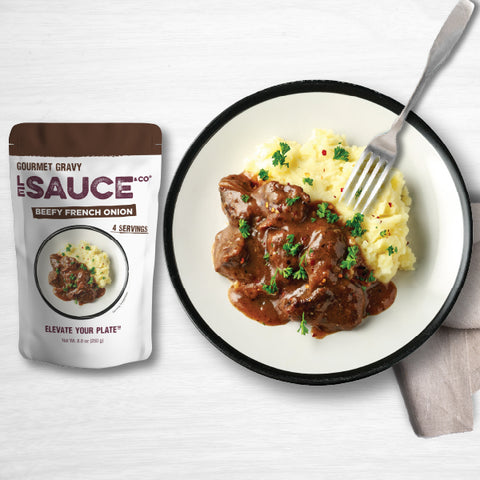And how you can serve them tonight.
In the beginning, there was “Ius Candidum In Elixam”—one of the first known recipes for sauces published in a 4th Century Latin cookbook. A potent blend of fermented fish paste, pepper, wine, onion and pine nuts, it was designed not so much to complement foods as to overpower their not-so-fresh flavor sin a time before refrigeration. As new worlds were discovered, so were new spices and herbs, along with regional cuisines from neighboring countries. From Greece to the Far East, Africa to Italy, most every culinary culture is a collection of influences over time.
France became known for its sauces, especially with the publication of “Le Cuisinier François” in 1651. Here began“The French System” of fine sauce preparation, using concentrated stock instead of plain broth, roux rather than raw flour, seasonings that enhance without overwhelming. Where they once were thin, coarse and uneven in texture, sauces now became velvety, suave and succulent. Many, named after dignitaries of the time such as Louis de Béchameil, Philippe de Mornay and Prince Soubise, are still in today’s classic repertoires. Others honored their place of origin, like“Hollandaise”created by French Huguenots exiled in Holland. By the time of Auguste Escoffier’s great “Guide Culinaire” in 1902, there were over 200 different sauces classified into five “mother sauces”which became the foundations of many dishes and other sauces.








Comments (0)
There are no comments for this article. Be the first one to leave a message!